
The Orphan's Tales: In the Cities of Coin & Spice is the second book in a two-book series, and the better of the pair by far. It's a deeply warm-feeling fantasy tale about a multitude of characters (which I'll discuss further in a moment), feeling 'adult' without being overly edgy or dark. In the style of 1001 Nights and similar fairytales, The Orphan's Tales is told through stories and anecdotes from almost every named character, something like a matryoshka doll in story form. This results in a cast where no one character feels sidelined or irrelevant, and in which every character is almost equally lovable-- my personal favorite is Oubliette, a huldra (which is described as being a sort of combination of a girl, a cow and a tree) who is seeking independence after being rejected and labeled wicked by her family.
As with most books, The Orphan's Tales: In the Cities of Coin & Spice is not free of problems; it uses some language that is now considered unacceptable, and there is one character who proceeds to go into a pages-long monologue largely concerning castration, but these are the only glaring issues. The prose and story structure may also confuse or overwhelm readers, but those who are prepared will likely find a great deal of enjoyment in it!
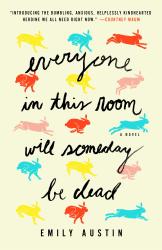
Everyone in This Room Will Someday Be Dead is a story about Gilda, who is an atheist, twenty-something years old, highly anxious, and gay. When she goes to a church after hearing about free therapy and assumed to be applying for the receptionist position, Gilda can't bring herself to correct anyone. Over her term as a Catholic receptionist, Gilda will have to lie about a dead woman, learn the lines for mass, hide her new girlfriend, and discover the hope that can come with the truth.
This book is the type of realistic fiction I usually call "a day in the life." It isn't about extraordinary circumstances or new love or changing lives. It's just someone struggling to survive the way that they always have, perhaps while working to get themselves out of it. Gilda's life is terrifying and constrictive. She's constantly afraid of what other's think of her, of people's disapproval, and yet is often so exhausted that she can barely communicate with the people she cares about. She's also, as the title foreshadows, constantly obsessing over death. Seeing the world through Gilda's eyes is strange and sad and scary. But it's also extremely enlightening. Even though Gilda is definitely an neurotic anomaly, her quirks and struggles are extraordinary relatable. The author really forces the reader to stare in the mirror, to see the fears and embarrassments that hold us back on a daily basis. One example could be Gilda's focus on death, which is almost paradoxical since her fixation on the end of her life keeps her living the life she has right now. I know that when I finished this book, it filled me with the desire to live my life to the fullest. The book also stands out with great prose, memorable characters, and vivid atmosphere!
All in all, this book might be unpleasant to read sometimes due to the depressing subject matter, but it's so educational and important that I'd recommend everyone read this at least once!
Reviewer Grade: 12
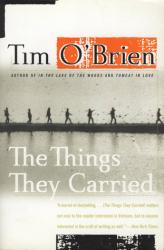
The Things They Carried is an interesting narrative about a group of soldiers as they navigate the horrors of the Vietnam War. Each chapter is fairly short and tends to have a lot of action or interesting commentary, so it was pretty engaging. What I didn't love, though, was the author's combination of realism and fiction. He used his own name as the main character, but experienced fake scenarios with people who never existed. It was sometimes frustrating, not knowing what was real or not. O'Brien was a soldier in the war, but he said that fictional war stories are a way for him to convey important messages of courage without reliving the trauma of his actual experiences. This is a unique genre, so it's worth a try if you like realistic fiction.
Grade 12
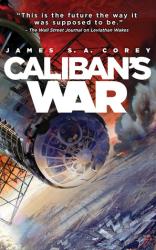
Caliban's War is the second book in The Expanse series. It continues with Earth, Mars, and the Outer Planets with high tensions after barely avoiding interplanetary war with the destruction of Eros. When a figment of the planet-destroying protomolecule tears through some Martian marines, war once again becomes a possibility. Will a disillusioned crew, a grieving scientist, a stubborn UN officer, and a self-destructive Martian be able to find the truth, or will war and violence and alien evolution consume them all?
This book is as good as the first book. That's high praise, since the first book was very, very good. It continues the somewhat difficult experience of lots and lots of characters in lots and lots of places, but I feel like this novel was a bit easier to digest since most of the worldbuilding was out of the way. The characters also pick up smoothly from last time, with the effects of the last book's events heavily influencing them and their actions. The way they interact with this world, their situations, and each other is so organic and complex that I found it hard to feel I wasn't reading about real people. I also like how the author lets so many of her characters hate or dislike each other while still juggling all their perspectives in different chapters. It is such a treat to see through one character's eyes while they do something they think is perfectly normal and rational, then pivot to another character's point-of-view that sees the first characters actions as completely stupid. While the new cast of characters was initially overwhelming after the amount of emotional investment that was steeped into last book's characters, I found them extremely interesting and fun. They were all completely different from one another, and gave so much variety to the way we see the story. Once again, the realism of this series is striking. Even if every little political nuance isn't picked up, we can still follow the general vein of alliances and rivalries as well as we follow them in our world. It almost feels like reading a historic fiction book, with every plot point a mirror to similar groups and events in our own history. Finally, the plot of this book was very solid. There was some dragging on the beginning, and the ending wasn't nearly as climactic as the first book's, but it was still a wonderfully gripping and satisfying story.
All in all, the Expanse story remains a tour de force with Caliban's War, and I can't wait to see what the next story holds. I would recommend this to anyone who loves great sci-fi, lovable characters, and a plot that's out of this world!
Reviewer Grade: 12
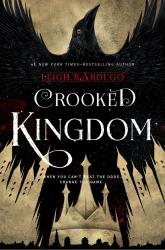
The only thing keeping this book from a full 5 stars is the fact that I'm still upset about a choice Leigh Bardugo had made in writing the end of the book. I won't spoil anything, but I will say, I have never cried harder over anything. This book opens where we left off with Wylan wearing Kuwei Yul-Bo's face, and our gang must rescue Inej, get revenge, and defeat the bad guys. But that doesn't even begin to sum up all of the action, adventure, and craziness that this novel entails. And as well as being dark and compelling, the characters and relationships we love become even more fascinating and developed. Kaz and Inej, Jesper and Wylan, and Matthias and Nina have come quite far with each other, and draw me in more and more as time goes on. This found family has been and always will be my favorite group from any novel. The ending was devastating, but it was absolutely amazing. It was the kind of ending a story like this deserves -- the kind that leaves you wanting more, but knowing that it finished in exactly the right place.
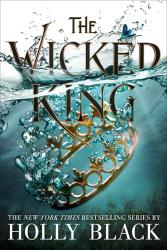
After tricking Prince Cardan to not only be king, but also into obeying her every command for a year and a day, Jude steps up as the new king's seneschal. With nearly the entire kingdom of the High Court of Faerie, at her command, Jude conspires of how to keep the throne from her evil step-father, Madoc, and hold it until her step-brother, Oak, is old enough to rule. Kidnappings, murder, betrayal, scheming, plot-twists, unexpected and unspoken thoughts, The Wicked King was a book I never wanted to end. Holly Black uses such captivating diction, dialogue, and imagery, it constantly had me yearning for more. If I could read this story over and over again for the first time, I would. Holly Black has a way of combining politics, war, calculating and powerful Faerie, and sub-plots of romance; nothing too overbearing or confusing. It has everything I could ever wish for in a fantasy book. I definitely recommend reading this novel to anyone and everyone.
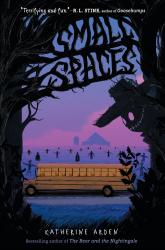
The book is about a book loving kid named Ollie who after coming home from school sees a woman trying to throw a book into water. Ollie of course takes the book away from her and got a warning. The book Ollie got slowly connects to the farm she's visiting for a field trip. After the trip the bus breaks down and they find themselves listening to the bus driver and leaving into the fog. Which led them to a creepy place where scarecrows roam around at the night. Overall I loved to see the book slowly connect as the pieces began making sense. You get to see the characters grow emotionally and begin to understand each other. The eerie feeling of the book fits and the ending makes it feel like it's gone back to this small town and nothing ever happened.
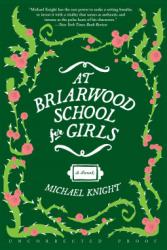
Lenore Littlefield is a student at the Briarwood School for Girls. She plays basketball. She loves history. She goes out with friends. She's pregnant. Throughout the novel she will seek aid from an isolated history teacher, an intense coach turned play director, and a ghost that's been waiting for her call. But in the end, it'll be up to her to take the next step forward.
Despite never reading extensively from the genre, I believe this book is the epitome of southern gothic. It has a lazy purpose to it, a meandering story structure that maintains its tension. The characters are all disillusioned, which is contrasted starkly by the idealistic and energetic schoolchildren around them. This book is really good if you enjoy this sort of thing, otherwise there's a chance the plot could strike you as slow or boring. I personally really liked it, especially the use of prose to bring meaning and intent to the setting. Another great thing about the novel is the story-within-the-story, meaning the play that Lenore Littlefield participates in, that beautifully mirrors and enhances the significance of Lenore's situation and the themes of the novel. The only reason I gave this book four stars was that the ending felt out of nowhere to me, but looking back that was probably the authors intent.
All in all, this book was a very good supernatural southern gothic. I'd recommend it to anyone who likes great characters, interesting story structure, amazing prose, and a heartfelt story!
Reviewer Grade: 12
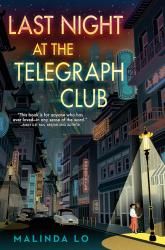
Last Night at the Telegraph club is set in the 1950's and follows Lily Hu a student in her final year of high school, and follows her life. During a dangerous time for Chinese Americans. It progresses slowly the struggles of Lily slowly begin adding up putting pressure on the characters, in multiple moments you can feel the pressure yourself, and feel the struggles. It confronts multiple stereotypes of the time this book it set women in stem, and the lesbian community. The characters in this book feel like their real, the characters have multiple layers to their personality. It immerses you in the story that you can perfectly picture and see yourself in the settings. The ending it leaves you wanting more, I would love to see a sequel of the following events that happened afterwards.
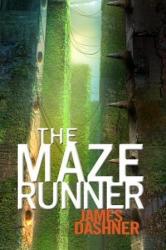
I started reading this book in 2012, just a few years before the movie was released. This book is a personal favorite of mine that I have read over and over again. This dystopian story follows a boy who was placed in the center of a maze with several other boys and follows his journey as he uncovers dark truths and attempts to escape the maze. Personally, I love the attention to detail in this book and how it keeps you on your seat throughout the story all the way to the end. In no way was this book predictable. When I first read this book I wasn't aware that it was of a series, so I was delighted to find out there were more books because of how great of a story it was. I would recommend this book to tweens and up since there is some mature material such as fighting and dying (it doesn't go into gory detail). Overall, this is a great read that I would personally highly recommend!
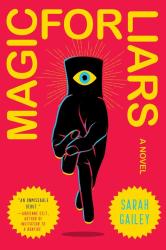
Ivy Gamble is a private detective who can't do magic. Her twin sister, who she hasn't spoken to in years, is magic. And Ivy Gamble definitely isn't bitter about this. When Ivy is hired to solve a horrific murder at The Osthorne Academy of Young Mages where her sister teaches, Ivy must face the losses in her past, the uncertainty of her future, and all the lies she's been telling herself.
Reading this book is like reading a short story. I mean that in the best possible way, in that the story is so tight and focused that it carries an emotional punch that usually comes best out of a short story. Some characters could be seen as one-sided, but for the most part every person in the book is given an opportunity to push beyond what they seem to be and surprise the audience in new and interesting ways. The two stars of the show would definitely be Ivy and her sister. Their relationship alone carries a depth and complexity I haven't seen in a while, and each on their own have a ton of layers to explore. I would also like to praise the worldbuilding of the book, mostly in that there isn't much of it. The book does enough to let us know what characters can and can't do, but it doesn't bother going to into a lot of unnecessary details. This is part of the reason the story is so tight and effective: the book trusts us all to have read books about magic schools, and doesn't bother trying to break the mold in a story that's about something completely different. I also like how the book is told through Ivy's point of view. It's well done in a lot of ways, mainly in the way it shows the twisty perceptions this book is about, and in how it shows Ivy herself. For example, Ivy spends much of the book obsessed with the fact that she could've been magic, but anyone reading can easily see that being a detective was the best path for her anyway. Its amazing how competent Ivy is, and how much that shines through despite her narration. I also like the plot twists this book does, how they're pretty predictable but are still so fun to watch unfold. The ending was surprisingly anticlimactic to me at first, but now I can see the way the book was trying to create a realistic ending, and let the audience hope for it to eventually be a happy one.
All in all, this was an amazing joyride of a book. I'd recommend it to anyone who loves magic, mysteries, complex characters, and stunning writing!
Reviewer Grade: 12
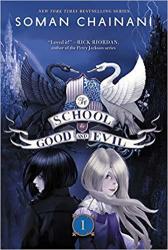
At first look, The School for Good & Evil may look like your classic and basic fantasy book with a little romance. Even though there is so much more, this book has so much depth to its plot, and just how the world is set up could be a whole book in itself. It starts in this little classic village that looks like any classic medieval village, maybe a bit more sophisticated. This village for the past 150 years has had two of their children aged around 16, boy or girl, taken from their village in the middle of the night and they are never seen again. The villagers try their hardest to stop this force that takes them, yet every year they fail. They go looking for them in the forest surrounding the village but every time someone has gone looking they go in on one side of the forest and appear out of the forest on the other side of the village. Then every year a book shows up full of stories, some including people who look like the children taken, the bookmaker then copies this book over and over to sell to everyone in the village. These stories are the classic fairy tales that everyone has heard of, as well as fairy tales we have never heard of. The village people have no clue where the children go or what happens to them except for the maybes in the books. Yet they know one thing, one child is good and one is evil.
The story starts with two girls, Sophie and Agatha, two best friends, yet opposites. Sophie is your classic-looking princess who has flawless skin, long golden blonde hair, beautiful clothes, almost the best house in the village, and is kind to everyone. While Agatha is your classic-looking witch who dresses in all black, doesn’t care about her appearance much, lives in a graveyard, has a cat that seemed to come from hell, and her mother is the witch doctor of the village. Both the same age, everyone knew they would be taken, knowing which is good and which is evil. Sophie wanted to leave desperately and did everything she possibly could to make sure she would be taken, Agatha wanted to stay in her quaint little life and not leave the village, her mom, and her cat. When the day came that the children would be taken everyone in the village worked to blockade every window door and make sure everyone stayed inside, while everyone older lined along the forest. Sophie prepared to be taken, and Agatha prepared to save her best friend from being taken. Night fell and as it turned out both Agatha and Sophie were taken, it was not a fun ride; they were pulled through the forest, the branches ripping their skin, then flying above in the claws of some bird. The two girls then saw the castles, the school for good and evil, one castle bright and shining and the other dark and gloomy. A fog came in and the girls couldn’t see anymore, they then were both dropped first Agatha and then Sophie. Yet Sophie woke up in the swamp of the evil castle and Agatha woke up in the shining clear blue lake of the good castle, something no one anticipated.
This book was something I never expected, I thought it would just be a bunch of fluff and would be a really short, easy, and bland read. NOT AT ALL. This book changed my expectations of how books should be written. This book was like something I have never read before. The twist on how we see fairytales is insane and shows what we never would have thought happened. There are so many twists and turns that even though you know the general idea of the book, you have no clue what is going to happen on every single page. This book would be great for anyone that loves reading fairy tales, fantasy, drama, and a little bit of a dark side twist in books.
Reviewer Grade: 12
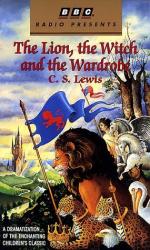
I first read this book when I was much younger and have read it many times since then, yet not in recent years. I just finished reading it once again about a month ago. Just like when I read the Lion, the Witch, and the Wardrobe for the very first time there was so much magic and wonder that engulfed me once more, and will again many times more.
It begins during the Blitz in 1940 with a family of four kids, Peter, Susan, Edmund, and Lucy. They, like many other children during this time, go to the countryside of England to escape the war and be safe. Yet their time in the countryside will be much different than any of the other children’s. They arrive at this mansion owned by a professor, who has a housekeeper that doesn’t want children there and makes sure that they don’t touch anything. The four children don’t want to leave their family and their home in London, but the homesickness fades away quickly once they start to have fun in the house and find a world of magic and endless possibilities. Lucy, the youngest of the four, finds a wardrobe hidden away in a spare room in the house, in it are a bunch of fur coats. She makes her way through with her eyes closed as the soft fur rubs against her cheeks when she suddenly feels something prickly and cold. She finds herself in a wood in the middle of winter and a faint light in the distance, the light coming from a singular light post in the middle of nowhere and nothing to power it. Here she meets Mr. Tumnus, a faun, who invites her for tea and cakes. She spends hours with him and learns about the land she is in, Narnia which is in a 100-year winter, and that she is the first human in this strange land in a long time, as well as that there is a witch, the White Witch, who has enslaved all of Narnia. When she returned she had been gone for hours, yet to her siblings, it was mere seconds, they didn’t believe her and when they went to check the wardrobe there was no wood. Edmund was especially mean about it but followed her in the middle of the night and found himself in the middle of the same forest she described and Edmund met the White Witch. One day all four children were rushed into the wardrobe as the housekeeper gave tours of the house since it had many relics, and they found themselves all in Narnia, not at all ready for the adventure ahead of them.
This magical place and book always make me feel like I was there with Peter, Susan, Edmund, and Lucy, as they had their adventures. The magic that C. S. Lewis was able to resonate with me every day as I too looked for a magical portal to a world unknown. This book is so enveloping as you read and finish it, it stays with you for years, making you think in ways you never thought of before. This book is an amazing book for anyone looking for an amazing fantasy book or a book that every time you read it you see something new.
Reviewer Grade: 12
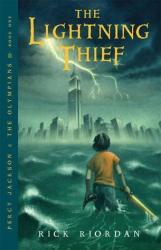
I have always loved Greek mythology, so when I found this book I knew I would love it. I was right I loved it, it was amazing. The Lightning Thief centers around a pre-teen named Percy Jackson, who lives in New York and has trouble in school. He has been in and out of many schools, almost a different one each year. At twelve years old Percy always felt like an outcast, like he fit in somewhere just not anywhere. He struggled with dyslexia and ADHD. Every year at school he has had some strange occurrence that ends up getting him kicked out. He has a best friend, Grover, and an amazing mother, Sally. He also has a stepfather that is abusive and he has pushed his mother to leave him but she won’t. There is a reason though for all of what Percy has gone through in his life. After encounters with many horrible and terrifying events and things in which most try to kill him, he and Grover end up at Camp Half-Blood. At camp he learns many new things, his best friend isn’t human but a centaur, his father is the God of the sea, Poseidon, and there is a prophecy that he is destined for great things. At camp Percy meets Annabeth, a girl that is a child of Athena the goddess of wisdom and warcraft, she is crazy smart and very resourceful, yet also seems to be an amazing friend and person altogether. As the three of them go on a quest to find Zeus's missing lightning bolt and return it to him. Percy, Grover, and Annabeth set out across the country for a quest of a lifetime, all at the age of 12/13. Percy and his friends face monsters and things they never could have imagined.
This book was honestly one of the best books I have read ever, and I have read a LOT of books. Although it is for a bit younger age group it is still an amazing read for anyone who is looking for a lighthearted and funny fantasy and adventure book, combined with Greek mythology and overall great writing and plot structure.
Reviewer Grade: 12
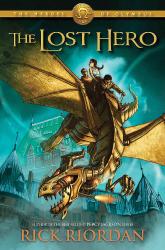
As a continuation of Percy Jackson and the Olympians series comes The Lost Hero. A novel continuing the world of Percy Jackson with all new faces and plots. Just like the original Percy Jackson series, I loved this first book of the Heroes of Olympus. The Lost Hero begins with Jason, a kid who can’t remember anything of his past waking up on a school bus with other students and two people talking to him. These two people are Piper and Leo, his apparent best friends and girlfriend. He doesn’t remember either of them at all. Even though they remember him and all the memories they shared. Piper is a kid from a famous father who does bad things to get his attention. Leo is the comedic relief of the group and makes everyone laugh, while also being a genius with mechanics. They are all in a school for delinquents and their actions sent them there. They are visiting the grand canyon when all of a sudden monsters attack causing everyone to panic. Jason starts to speak Latin randomly even though Piper and Leo had no clue he spoke it and never heard it, and Jason didn’t know that he could either. Jason also refers to the Gods with their roman names as the monsters talk to them. They are rescued by people from camp half blood and as expected there are some familiar faces. They get to camp and realize why they act the way they do and are eventually sorted into their cabins and Godly parents. They hear a prophecy and are instructed to save Hera and hear a new prophecy. They start on their quest and along the way, they learn more about each other and build a friendship from scratch again starting from the school bus. They encounter many new and different minor Gods and Goddesses as well as new creatures and people never seen before.
Just like Percy Jackson and the Olympians series, Rick Riordan can make new and exciting plots and characters. The amount of detail in this book was upped by a lot compared to his earlier works as they were much larger and could fit in much more story, allowing for a better and deeper story. I would suggest this book and the rest of Rick Riordan's books to anyone that loves Greek mythology, great writing, and as well as adventure, fantasy, comedy, friendship, mystery, and a little bit of romance all tied up into one great book.
Reviewer Grade: 12
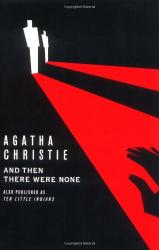
Ten strangers are mysteriously summoned to an isolated island... where murder awaits. Agatha Christie crafted an intricate web of betrayal and suspense, a must-read for any avid bookworm. This read was completely unpredictable - everyone was a suspect until the final, jaw-dropping reveal. The setup, the characters, and the gripping plot made this the best murder mystery I have read in years. With its trademark twists and a chilling ending, no one should miss out on the masterpiece of And Then There Were None.
Grade 11
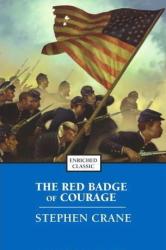
This book was a fascinating piece of literature. The author described war in more of a psychological format, as in the effect of war upon the mind, then a physical format. It reminded me of Robert A. Heinlein's Starship Troopers in its attention to the mind of a soldier. Many Civil War veterans would get a shock meeting Mr. Crane because they thought he had been in the Civil War when he hadn't. It was interesting how Crane referred to the main character, Henry Fleming, as "the youth". He uses similar naming for the other characters, like "the tall soldier," and "the friend." I enjoyed the book, and I'm impressed at how Crane, according to actual soldiers, so acutely described war on a minute-to-minute basis, when at the time of writing, he hadn't ever been in battle. This book almost felt like an experiment of Crane's, like he was just exploring new ideas. The result was international fame and a famous landmark of American fiction.
Reviewer Grade: 9
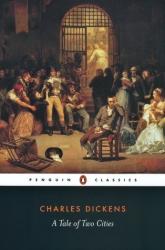
Thankfully, the older language in A Tale of Two Cities is slightly more manageable to read than other classics, so I was able to enjoy it. The story is about a young woman named Lucie and her father, Dr. Alexandre Manette, who had been smuggled out of prison and struggled with PTSD. Lucie is able to rehabilitate him and she falls in love with a young man named Charles. However, the last quarter of the book is a whirlwind as the characters discover one major factor: Charles may be involved with Dr. Manette's unrightful imprisonment. Each character is well-rounded and very practical under the gruesome circumstances of the French Revolution, though social norms of the time period still painted Lucie as incapable regardless of her courage in healing her father and coping with court troubles. The unexpected ending was my favorite, and is still memorable long after finishing the book. Despite the intimidating factor of the publication date, still give this book a try.
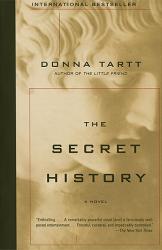
The Secret History was recommended to me as an intriguing fall read, and it did remind me of the tight-knit yet rocky friendships of A Little Life or Dead Poets Society. However, much of the plot was less of an engaging mystery and more of a disturbing commentary on mental health in young adults. In summary, the narrator named Richard joins a small class of just five other students at a college in Vermont, and gets roped into their academic pursuits which are so similar to that of the rest of the student body, yet so different. Though the six main characters were each witty and entertaining, their bad choices eventually crosses a line to where readers couldn't support them anymore, which I wasn't sure was the author's intention. Even if it was, their behavior was a terrible influence in general, beyond what trends were acceptable in the late 1900s. Drinking, drug-consuming, and verbal abuse was relentless, and almost glorified. I felt terrible that Richard had begun to conform to the norms of his five colleagues, but there was no advancement in the story to suggest that he was even making bad choices. It's possible that I just didn't understand the moral, so I would still recommend this book; just be wary of its dark themes.
Grade 12
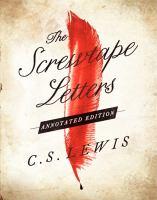
The Screwtape Letters by C.S. Lewis is a novel told in correspondence. Specifically, letters back and forth between a demon called Screwtape and his nephew Wormwood. These demons write to one another about all sorts of things, as families do, but mainly the humans. In this book, humans are the occupation of demons. Keeping them distracted, discontent, and leading them to misery is a merit of any accomplished demon. Readers will enjoy Wormwood's questions of "why must we do this?" or "is there a better way?" as he struggles with his mission to lead humans astray. Screwtape and Wormwood discuss many relevant issues of our own time, and the subject of spiritual warfare is present throughout. The Screwtape Letters is highly recommended for fans of Lewis as an introduction to more serious work or works on theology.


